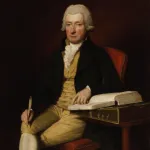As Whitman sang the body electric
Goodwin sings the body forested:
dense stand of dark-trunked saplings
illumined by a blood-streaked sky,
ominous forest where
abandoned children wander
vulnerable to the spell of wolves,
stepmothers and jealous queens—
omnivorous forest, perilous to enter.
I mean the body unseen,
the body beneath the skin
where invisible infrastructure
thrums as it surges and sluices
through murky runnels and canals, networks
of branching pipes puffing,
slaving away—schuften
schuften, schuften, schuften—
with little or no compensation
until strength gives out, and
the blood-orange sea explodes,
subsides, drains away
or is pumped clean by funereal technicians
like those who flushed and sewed
until your body became the one
displayed in the satin-lined casket,
a papier-mâché effigy wearing
your wire spectacles—
not a body I recognized,
not the body you inhabited as a boy
small for your age, red-nosed, recurrently
bedridden, a body we believed
had no athletic bent, the body you left
behind as you grew into manhood
discovering the body turning
handsprings in Love’s Labour’s Lost
as we gasped in disbelief, having
been firm in our conviction that your body
was incapable of anything more
physical than some side stroke swimming, yet
here you were, suddenly fit and muscled,
dancer-like in strength and grace,
in an adult body that filled out over the years,
acquired padding traceable to your priestly
passion for food and drink, especially fine
non-sacerdotal wine—a fullness
cancers and their ruthless treatments
then eroded, sucking
vitality from your cheeks and bones—the frame
over which morticians pulled
your tissue-thin skin to fashion
a caricature of your vacated body,
the body I wish to erase from my memory,
the body I refuse as the memory of you.
Ruth Roach Pierson, "After Betty Goodwin's The Memory of the Body (1993)" from Contrary. Copyright © 2011 by Ruth Roach Pierson. Reprinted by permission of the author.
Source: Contrary (Tightrope Books, 2011)





